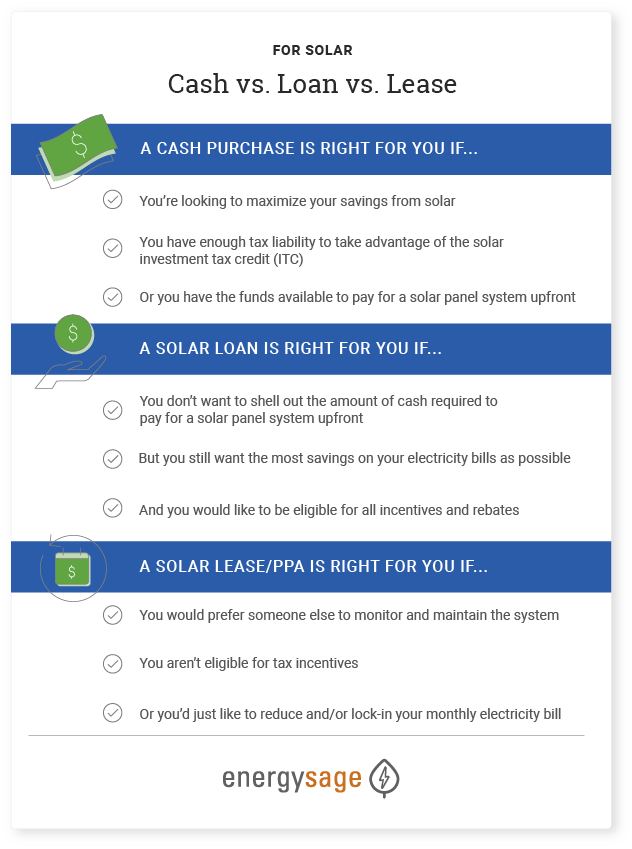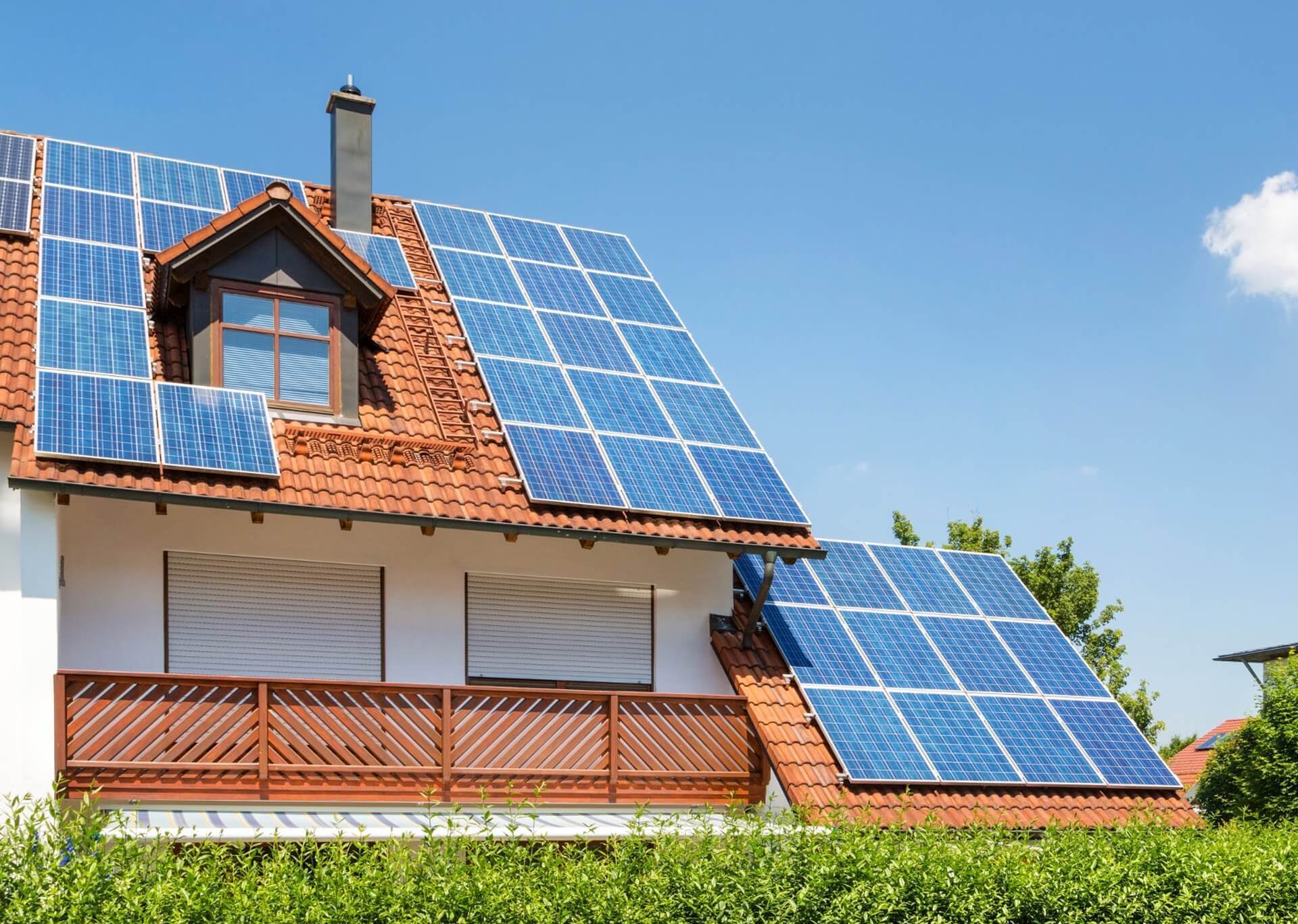Best Value & Quality Solar Energy Solutions. Solar financing options: How do you pay for solar? Palmdale, FL. For Free Consultation Call us at Call (732) 907-8400
Some commonly asked questions
- What are the different types of solar batteries?
- What is return on investment (ROI) of residential solar panels?
- How do you install solar panels?
- What are the three types of solar inverters?
- What are solar trackers?
- What is a kilowatt-hour (kWh)?
- Why do you need to have a solar battery?
- What are solar inverters?
- What are the 3 types of solar panels?
- What are the basic components of a solar power system?
- What are solar mounting systems?
- What is solar leasing?
- What to know about a solar panel warranty
- Can you install solar panels yourself?
- What is an off-grid solar system?
- What is a grid-tied solar system?
- How much energy does a house use?
- What’s the best orientation and angle for solar panels?
- What is a solar charge controller?
- What is a solar loan?
Palmdale is an unincorporated community in Glades County, Florida, United States, located on US 27 just north of the junction with State Road 29.
Originally part of DeSoto County, Palmdale’s land was pioneered by Florida Fruit Farm Corporation, selling the land to the Palmdale Land Company, which sold the land to five-hundred settlers, creating the first community in 1911. Many farmers were “discouraged” by the lack of transportation, prompting them to move out of the area by 1917. Many of these farmers left their homes behind, along with their personal belongings and furniture. New farmers and pioneers to the area would take up residence in the abandoned homesteads. Eventually, wildfires destroyed many of the original homesteads.[1]
You’ve probably heard a lot about solar energy and how it’s a great way to save money and reduce your carbon footprint. But what you may not know is that there are a variety of solar financing options available that can make going solar more affordable than ever. In this blog post, we’ll explore some of the different ways you can finance your solar installation, so you can decide which option is best for you.
Which Solar Financing Option Is Right For You?
There are a variety of ways to finance the costs associated with installing solar panels. There are, however, some key differences between the options. The most prevalent financing option is to purchase a solar panel outright or through solar leasing. This option can be a good one for people who don’t have much money to invest upfront but still want to benefit from going solar.
If you’re not interested in buying a solar panel outright, you may instead consider leasing or purchasing a solar panel so that you can save up for it without having to make payments on it immediately.
Other solar financing options
The most popular solar financing option is a loan. Many banks offer loans for solar purchases and installation, as well as loans to finance microgrids. However, it’s important to note that this option can be more expensive than other methods of financing. Another renewable energy financing option is crowdfunding: people donate funds to start a project that will have a positive environmental impact or reduce the corporation’s carbon footprint.
You don’t have to go it alone with your solar purchase. There are many organizations that can help you finance your purchase and install a solar panel system. These options might not be available in every circumstance, but they are worth trying when other payment methods aren’t an option or if you need additional support from these groups when starting the process of going self-sufficient through renewable energy.
Government loan
There are government loan options available for people who want to install solar. In particular, there is a program in the state of New York that allows people to finance their solar installations and even receive an income tax credit from the state. Additionally, there is a mortgage on offer through the New York State Energy Research and Development Authority that allows you to finance your installation with a low-interest rate.
Home equity loan
If you have a high amount of equity
or are in the fortunate position to be making a lot of money that you don’t yet spend all of, you can use your home equity loan to offset the cost of installing solar panels. For example, if you have a $50,000 home and $30,000 in borrowing power on your home mortgage, you can finance these solar panels with $20,000. The remaining cost would come out of your pocket.

What to look for when financing solar panels
When it comes to solar panels, there are a few things you’ll want to keep in mind when financing them. First and foremost, you’ll want to make sure you’re getting a good deal. There are a lot of solar panel financing options out there, so you’ll want to compare and contrast a few before making a decision. Additionally, you’ll want to make sure you understand all of the terms and conditions associated with the financing agreement. This includes things like the interest rate, the length of the loan, and any prepayment penalties. By taking the time to understand all of the details, you can be sure you’re getting the best possible deal on your solar panel financing.
What’s A Good Interest Rate When Financing Solar Panels?
When it comes to solar panels, there are a lot of factors to consider before making a purchase. One of the most important factors is the interest rate.
The interest rate on a solar panel loan is important because it will affect the total cost of the loan. A higher interest rate will increase the total cost of the loan, while a lower interest rate will decrease the total cost of the loan.
The interest rate on a solar panel loan also affects the monthly payment. A higher interest rate will increase the monthly payment, while a lower interest rate will decrease the monthly payment. Solar panel loans are available from a variety of lenders, including banks, credit unions, and online lenders. The interest rates on solar panel loans vary depending on the lender and the loan terms.
When shopping for a solar panel loan, it’s important to compare interest rates from multiple lenders. This will help you get the best interest rate possible. It’s also important to compare the loan terms before choosing a lender. Some lenders offer solar panel loans with shorter terms, while others offer solar panel loans with longer terms.
Solar panel loans are a great way to finance the purchase of solar panels. If you’re considering a solar panel loan, be sure to compare interest rates and loan terms from multiple lenders to get the best deal possible.
Is Interest From Solar Loans Tax Deductible?
Solar loans are a great way to finance your solar panel installation. But you may be wondering, is the interest on these loans tax deductible?
The answer is yes! The interest on solar loans is tax deductible, just like any other loan. So if you’re looking to save on your taxes and finance your solar panel installation, a solar loan is a great option.
There are a few things to keep in mind when deducting the interest on your solar loan. First, you can only deduct the interest if you itemize your deductions on your tax return. Second, the interest is only deductible if the loan is used for solar panels.
If you have any questions about whether or not the interest on your solar loan is tax deductible, be sure to talk to your tax advisor. They can help you determine if you qualify for the deduction and how to claim it on your tax return.

